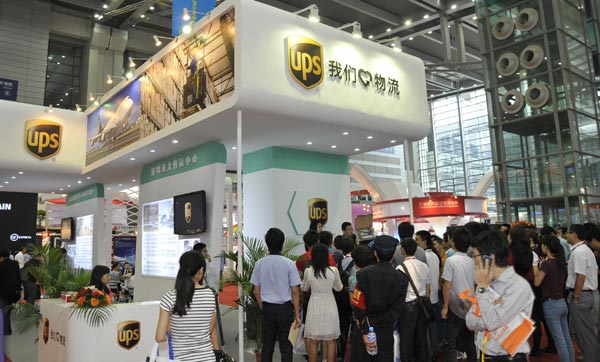

|
 |
|
A UPS booth at an exhibition in Shenzhen. China is the world's third-largest market for express services behind the United States and Japan. Last year, 8,200 express companies were operating in China, compared with 5,327 in 2010. [Photo/China Daily] |
United Parcel Service Inc, the world's largest package delivery company by revenue, is looking to keep an upper hand in the Chinese market by adding 14 inner-city express services next year.
UPS began domestic courier services in 2012, when it was granted seven licenses by the State Post Bureau of China. With more goods circulating in the world's most populous market, it expanded to 19 first- and second-tier cities this year and expects to reach 33 cities in 2014.
Scott Davis, chief executive officer of UPS, said that China's middle class will grow significantly over the next 20 years and more delivery services will be needed, so the company wants to expand its network in the country.
"China will be an important market for UPS in the future and we want to have the ability to serve this marketplace," he said.
China is now the world's third-largest market for express services behind the United States and Japan. Last year, 8,200 express companies were operating in China, compared with 5,327 in 2010. The average number of pieces of mail and packages delivered amounted to 143 million a day in 2012, according to the Beijing-based China Federation of Logistics and Purchasing.
Davis believes that China does a better job in foreign trade than most of the world and that the nation is keen to sell more goods through diversified channels.
"Exporting can sometimes be intimidating and complicated for small and medium-sized businesses. However, with supportive policies, we can simplify the process with businesses in the China (Shanghai) Pilot Free Trade Zone and this could help us to seal more deals sooner or later," Davis said.
UPS owns and operates two large hubs in the country. In South China's Guangdong province, its Shenzhen Intra-Asia Hub provides services for customers doing business with emerging Asian economies, while the company's Shanghai international hub links Asia to the rest of the world.